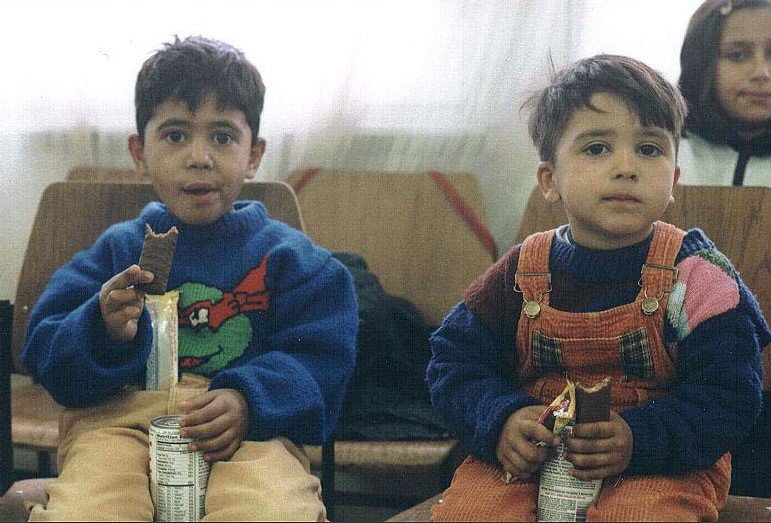Time for Europe to end childhood statelessness
22 November 2016
“My wife has no documents and therefore our four children cannot get documents either. When I brought my youngest child to be vaccinated the medical staff demanded 2000 dinars (about 25 euro). I had no money and could not afford it. They shouted at me and my family that if we know how to make children we should know how to get documents.”
(Roma IDP, Belgrade, 2009)
But of course it’s never been easy to ‘get documents’, especially for those Roma uprooted and displaced by the Balkan wars. Years after the conflicts ended, and the new republics began auditioning to become members of the European Union, a combination of official indifference and racist prejudice meant that thousands of Roma still lacked documents. For many displaced Roma, bewildered by complex bureaucratic procedures and legal obstacles; hindered by unhelpful and often hostile officials; and too poor to pay or bribe their way around the system, peacetime brought new kinds of trauma.
Writing about stateless people cast off by earlier political convulsions in the 20th Century, Hannah Arendt reminded us that the rights lost by the stateless were much more fundamental than those proclaimed in lofty declarations. The problem was not one of equality before the law; rather it was one of not being recognized by the law at all. The fundamental human right is the right to have rights. And one particularly grim lesson from history was that in times of turmoil, stateless and undocumented people, who had no rights and officially did not exist, were particularly easy to murder.

Children made stateless by the war in Kosovo
Beyond catastrophe and post conflict, stateless people remain vulnerable to exploitation and abuse, routinely deprived of the very basic resources needed to live a life with dignity. And every day it becomes more evident that in the eyes of those who wield power, the actions, aspirations and opinions of undocumented people who today subsist outside the legal community count for precious little.
This much is plainly evident when one considers the plight of large numbers of Yugoslav Roma in Italy: having fled war without papers, or with documents that identified them as citizens of a country that no longer existed, Roma found themselves stateless. Facing frequent evictions, harried and hustled between dismal informal and formal camps, Roma still find themselves segregated and stateless so many years after the end of the Balkan conflicts.
Even in cases where there may be a formal entitlement to citizenship, such as the result of birth on the territory, administrative obstacles often preclude access to citizenship. Many of the persons concerned now have children and grandchildren who may also be stateless.
As Jacqueline Bhabha put it, legal identity does not guarantee a good life, but its absence is a serious impediment to it. The impact on children is catastrophic: whether they become stateless due to circumstances surrounding the forced or migration of their parents, or find themselves effectively stateless due to their parents’ lack of documentation to prove their connection as legal citizens to the state. A lack of birth registration directly hinders children’s entitlement to economic and social rights. Birth registration is a critical part of the evidence of legal identity, the prerequisite to the enjoyment of public services, and belonging to the community of citizens.
In his 2012 report on the Human Rights of Roma and Travellers in Europe, Thomas Hammarberg, summed up the situation, “Tens of thousands of Roma live in Europe without a nationality. Lacking birth certificates, identity cards, passports and other documents, they are often denied basic rights such as education, health care, social assistance and the right to vote … This problem affects many thousands of Roma people, particularly in Albania, Bulgaria, Romania, and the countries of the western Balkans and the former Soviet Union. Lack of administrative existence can also affect one’s children or grandchildren. The result is intergenerational exclusion.”
The publication of Commissioner Hammarberg’s report was followed by the launch of the European Framework for National Roma Integration Strategies. Has this made any difference to how states address the lack of identity papers and the dangers of statelessness? Apparently not. Apart from brief mentions in the Commission’s annual communications that sorting this out “is an absolute pre-condition” for ensuring equal access for Roma to public services, there is very little that might prompt governments to break with old habits, get inclusive, and set clear targets and timeframes to ensure every child’s right to a nationality can be secured. That’s why it is important that citizens press their governments to act. Getting every child registered at birth is a vital first step towards ending childhood statelessness, and a precious first step in their struggle for equality and dignity within the community of citizens.




